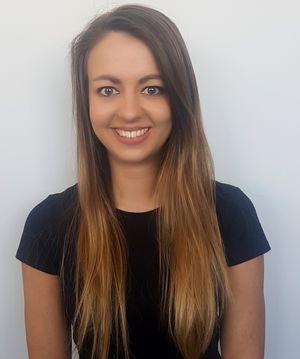Hi, my name is Emma and I’m new here. Now, the next sentence might make you want to close your browser, but bear with me.
I’m here to talk about death.
Did you feel that ‘I want to run away’ feeling? If yes, you’re in the right place (If no, you’re also in the right place and we have death curiosity in common my friend).
A little about me. My first job after graduating was in home care, and I went from knowing nothing about dying – what it looks like, what to do when someone is dying – to being surrounded by it. The thing that shocked me most wasn’t the dying itself – that was generally pretty peaceful – but the fact that nobody was talking to each other about the fact that this person was going to die. I would sit with the person’s family or friends and they would say that their biggest worry was ‘I don’t know what they would want in terms of their death/funeral/legacy and I don’t want to bring up the subject in case I upset them’. I would then sit with the person who was dying, and they would tell me that their biggest worry was ‘am I leaving my loved ones with a load of paperwork, important unsaid words and many unanswered questions?’ and sadly the answer was usually yes. ‘If only they would talk to each other’ I went home thinking almost every day.
It’s no wonder we find it hard to talk about this stuff. If you went back 100 years or so, death and dying used to happen in the family home. People would see death and dying, whole families, children and communities. They would talk about it, share stories about what dying was like and tips on how to care for a loved one both before death and after. It could be unpleasant yes, but we were in-touch with death and we had an idea of what to expect.
Nowadays we mostly lock death away behind closed doors – in hospitals or care homes. That isn’t to say that people don’t receive excellent care – our palliative health care professionals do a wonderful job. Though it does mean that if you asked most people (and many healthcare professionals) ‘what does a typical human dying process look like?’ they wouldn’t be sure; and yet, when we or our loved one is dying, the main questions we want to know is ‘what is likely to happen and how can I deal with it?’. Of course, we never know for sure, but by having a rough idea of what we can expect and what steps we can take to deal with any problems that might arise, we can empower ourselves to give our loved ones and ourselves a fitting ending to a meaningful life.
So, what am I doing here? My home care work set me on a path of wanting to find a way to help people to have these conversations. I decided to go about this in two ways – I trained as an End of Life Doula (most people haven’t heard of this role, but the best way I can describe it is to say we are like midwives but for the dying, you can find out more here https://eol-doula.uk), and started a PhD researching how we can improve communication in end-of-life care. As you can imagine, this is all quite busy work (especially with what is going on in the world right now) and so I am hoping that in exchange for sharing my insights into how we can improve death and dying for ourselves, our loved ones and our communities, I might receive a few coffees to keep me going on this journey!
Emma x
